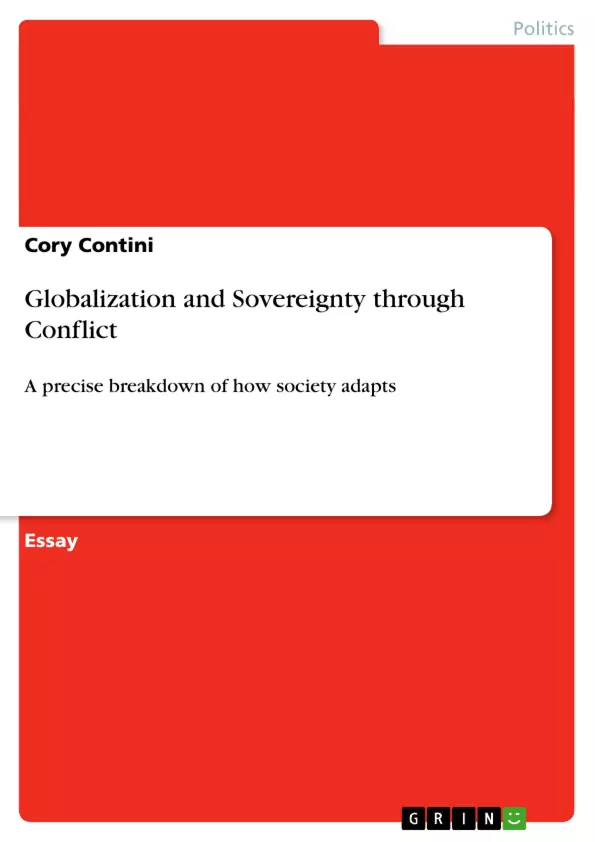Globalisation has brought about fundamental change. Advancements in technology have made the global markets more accessible than ever before making trade and investing abroad much more efficient. It has become so easy to reach the global population that it would be detrimental for any entity not to expand its horizons; however, the question on whether or not an entity should go global raises conflict right from the start.
Trading, in general, makes it more likely for conflict between countries due to natural trade relations; however, globalisation mitigates these problems. Conflict is innately involved in trading and trying to maximize one's own position but globalisation has brought information and resources closer to the trader allowing for faster and more informed decision making. So although conflicts may arise, globalisation helps to extinguish the conflict faster.
NAFTA is a trilateral agreement between the U.S., Canada, and Mexico which allows for free trade within North America. Although there is a section in NAFTA that specifically deals with conflicts between member countries, in general, the agreement makes it easier to do trade or invest by globalising the continent. That's not to say conflict doesn't arise because it quite frequently does; it just happens less often because the ground rules are well established.
Inhaltsverzeichnis (Table of Contents)
- Globalisation and Sovereignty through Conflict
- Globalisation and Conflict
- NAFTA
- Dependency
- Open Markets and Cultural Clash
- Domestic Conflict
- Globalisation and Sovereignty
- Sovereignty
- Statism
- Survival
- Self-Help
Zielsetzung und Themenschwerpunkte (Objectives and Key Themes)
This text explores the complex relationship between globalization and sovereignty, arguing that while globalization has brought about significant changes in international relations, it has also raised important questions about the autonomy and power of nation-states.
- The impact of globalization on international conflict
- The role of free-market capitalism in shaping global relations
- The tension between national sovereignty and the demands of globalization
- The implications of statism, survival, and self-help in a globalized world
- The ethical considerations of foreign aid and international responsibility
Zusammenfassung der Kapitel (Chapter Summaries)
The text begins by outlining the transformative effects of globalization on trade, investment, and communication. It argues that while globalization can mitigate some conflicts, it also creates new challenges, particularly in the realm of dependency between developed and developing countries. The text further explores the potential for conflict arising from cultural clashes and domestic disputes within a globalized context.
The second chapter focuses on the concept of sovereignty in a globalized world. It examines the principles of statism, survival, and self-help as articulated by realist international relations theory. The author argues that these principles highlight the tension between national autonomy and the increasing interconnectedness of the global system, underscoring the need for nations to prioritize their own security and survival.
Schlüsselwörter (Keywords)
Key terms and concepts explored in this text include globalization, sovereignty, conflict, free-market capitalism, statism, survival, self-help, dependency, and international relations theory.
- Citation du texte
- Cory Contini (Auteur), 2009, Globalization and Sovereignty through Conflict, Munich, GRIN Verlag, https://www.grin.com/document/230473



